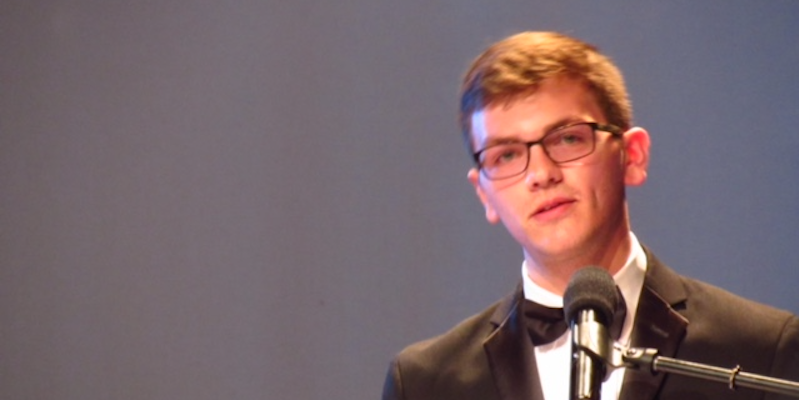How Values-Based Diplomacy Can Augment U.S. Global Primacy
In the first of two winning essays in our 2021 college contest, a student writes an open letter to President Biden.
By LOUIS SAVOIA | MAY 16, 2021

Dear President Biden,
Your election victory last November was a great relief for American diplomacy. This is partially due to your triumph over the promise of four more years of “America first.” Beyond the problems your predecessor left you, the world has certainly changed since you were vice president. New tests are now straining U.S. foreign policy and have affected our view of the proper U.S. role on the world stage.
Your first months in office show your determination to bring about more than a return to 2016. “Building back better” our international image after many miscalculations is a worthy foreign policy goal. In line with this objective, the role the United States should play is benevolent — a force for cooperation within international law and with moral clarity, not simply as an end in itself, but to promote peace.
Returning to constructive international engagement is a large pillar of this agenda. After previous administrations jettisoned accords from the Kyoto Protocol to the Intermediate-Range Nuclear Forces Treaty, damaging U.S. credibility, your administration’s return to the Paris Climate Agreement reversed that trend. Rejoining the Iran nuclear deal would be another welcome step. To further combat skepticism about American trustworthiness, these accords should be springboards to future pacts. For example, parlaying Paris into agreements on other pressing environmental issues, such as deforestation and biodiversity protection, is an option worth exploring. Showing the determination to build on such accords showcases commitment and mutes those who argue that international cooperation yields few dividends.
This may require going further than former presidents. For instance, joining the International Criminal Court, instead of questioning its legitimacy or sanctioning its prosecutors, would send a powerful message. Rather than reserve the right to supersede international order, this move would bring the United States back to the moral foundations of the liberal order, which we helped craft after 1945. This would show our seriousness in upholding a truly rules-based order, a moral position necessary to confront others on their contraventions.
The United States should not cede global leadership to powers like Russia or China. Instead, we can build global consensus while coexisting with them. The United States should host regular meetings of the Quadrilateral Security Dialogue, or the Quad, to remain present in Indo-Pacific affairs and coordinate responses to Beijing. The Quad’s recent plan to distribute Covid-19 vaccines in the region is one example of engagement bolstering U.S. influence regionally. We should strengthen NATO, which Russia seeks to divide, by acting as an intermediary in its internecine disputes, such as the one between Greece and Turkey. We should also provide greater assistance to NATO’s efforts to recalibrate troop and technology distributions across its member-countries.
We should also seek to undercut the existing wave of autocracy afoot globally. Instead of a grandiose “democracy summit,” it may be useful to foster closer diplomatic ties with specific developing countries. Some less-lauded, but impressive, candidates include Mongolia, Ghana and Uruguay, or even some still-rebuilding societies, such as those in Tunisia and Sri Lanka. In doing so, the United States can recognize emerging democracies in concrete ways.
Finally, the United States will need to grapple with limitations to American power, such as great-power competition and shifts in the nature of war. Sometimes this means that perfect solutions are elusive. Your recent decision to withdraw troops from Afghanistan is a prescient example — it would have been better to leave a more reformed and stable government in Kabul, but absent the ability to achieve this after 20 years, it is time to bring forces home. Americans have become frustrated that U.S. primacy and leadership face emerging complications. Unifying triumphs like the fall of the Berlin Wall just don’t come as easily these days, it seems.
The good news is that a foreign policy based on values and working with other countries is not antithetical to augmenting U.S. power. Rather than seeking to always resolve problems with force, this vision would strengthen our influence and put our values center stage, enabling us to combat new challenges as best we can and promote peace without conflict.
Even though there is much work to be done, the team you have assembled is fit for this undertaking. Hopefully, with your leadership, we can “build back better” not just domestically but globally.
Louis Savoia is a student at American University in Washington, D.C. This essay won him an internship at the Diplomatic Diary, which begins tomorrow.

